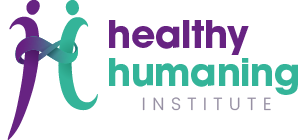Redefining Friendship: The Healthy Humaning Way
Friendship. A word so simple, yet so complex. For many of us, it used to mean anyone we saw often or knew a lot about. But if you’re here, you probably realize there’s so much more to it than proximity or familiarity.
How often have you called someone a "friend" while harboring bitterness, resentment, or even distaste for them? It’s time to shift that narrative.
At Healthy Humaning Institute, we believe in intentional, authentic connections—relationships built on mutual respect, understanding, and care. We define friendship as:
A flexible response based on individual energy, needs, and desire to support healthy, intentional participation.
Let’s break that down.
The Core Elements of Healthy Friendship
1. Flexible
Friendships don’t thrive under rigid expectations. Life happens. People go through different seasons—some busy, some calm, some heavy. Chronic illness, mental health, caregiving, and other obligations all influence our capacity for connection.
Flexibility allows us to honor those ebbs and flows, creating space for friendships to evolve instead of fracture.
2. Responsive
True friendship involves creating space for each other to connect authentically in the moment. That might mean answering a late-night text, sitting in comfortable silence, or setting a boundary when your energy is low.
Response isn’t just about showing up—it’s about showing up in the way that feels right for you and your friend.
3. Individual
Friendship isn’t “one size fits all.” Each person is unique, shaped by their own needs, values, and experiences. Intentional friendship means meeting people where they are, not where we assume they should be based on their roles, past behaviors, or societal expectations.
Healthy friendships celebrate individuality and create space for authenticity.
4. Energy
Energy is a finite resource. It fluctuates daily and often determines our capacity to participate in friendships.
Friendships should be energy-giving, not energy-draining. It’s important to honor when we or our friends don’t have the bandwidth to engage—and to trust that the connection will still hold.
5. Needs
Unmet needs can make it difficult to participate in friendships, no matter how much we care about the other person. A good friend acknowledges their own needs and respects those of others.
Healthy friendships recognize and support each person’s unique needs without guilt or shame.
6. Desire
We all crave connection, but the desire to connect doesn’t always align between two people. Sometimes it’s a timing issue, other times it’s a mismatch in how we want to interact.
Friendship thrives when both parties communicate and honor the ebb and flow of desire for connection.
7. Support
Support isn’t about splitting everything 50/50—it’s about equity. One person might offer emotional support while the other brings logistical help. What matters is that both people feel valued and cared for.
Mutually supportive friendships function best when built on trust and understanding.
8. Healthy
Is this friendship a net positive in your life? Does it foster safety, trust, and empowerment? Can you both show up authentically, exactly as you are in any given moment?
If the connection feels draining, unsafe, or inauthentic, it’s worth reevaluating.
9. Intentional
Gone are the days of accidental friendships based on proximity or obligation. Healthy friendships are chosen deliberately, not out of guilt, convenience, or tradition.
Ask yourself: If you were making this choice today, would you choose this friendship? If not, it’s okay to let it go.
10. Participation
Friendship isn’t passive. It requires active participation that works for both parties—whether that’s a weekly coffee date, a spontaneous text, or a once-a-year catch-up call.
There are no rules for what participation must look like—only that it meets the needs of everyone involved.
Why This Redefinition Matters
We’ve been conditioned to accept subpar relationships: friendships that drain us, connections we maintain out of obligation, or roles we’ve outgrown but feel guilty leaving behind.
Redefining friendship helps us:
Identify what we truly value in relationships.
Break free from harmful narratives and conditioning.
Repair where we’ve fallen short in the past.
It’s not about perfection—it’s about progress.
A Call to Action
Take a moment to evaluate your friendships. Are they built on intentionality, mutual respect, and authenticity? Or are you holding onto connections that no longer serve you?
Friendship is an ongoing practice, not a fixed state. And by embracing the principles of Healthy Humaning, you can cultivate connections that are not just fulfilling, but transformative.
